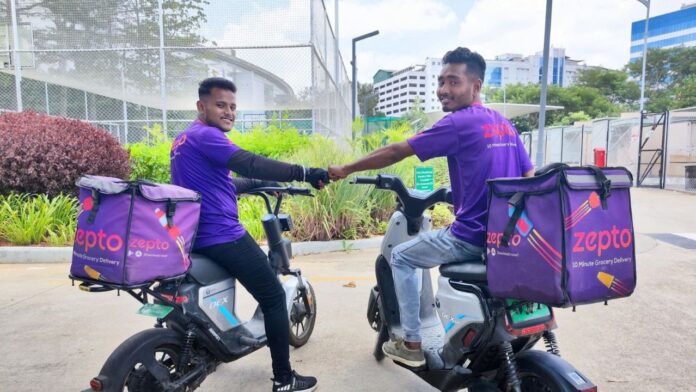The Indian market is no new to this as they are also taking an active part in it, notably last-mile delivery. Companies like Zepto, Zomato, Swiggy, and Dunzo have explored Q-commerce, yet the lack of comprehensive offerings hindered its potential. Quick commerce, or q-commerce, is changing the game by delivering way goods to consumers, with a focus on rapid delivery within minutes of ordering, at the same time traditional e-commerce typically takes days for deliveries.
Many major companies are shifting towards quick commerce to adapt their services to ensure swift delivery. However, to cover the costs that come with expedited delivery, these companies have begun imposing fees on various services
Zepto Introduces Platform Fees in Quick Commerce
Zepto, is the first quick commerce company to implement a platform fee of Rs 2. In addition to the platform fee, Zepto already has a late-night handling fee of Rs 15 for orders placed after 11 pm for certain cases. Furthermore, the company has discontinued free deliveries for select users, now charging delivery fees ranging from Rs 5 to Rs 28 based on cart value. Zepto aims to achieve EBITDA profitability by May 2024, focusing on operating efficiency and cost reduction rather than solely relying on delivery fees.

Even competitors like Blinkit and Swiggy Instamart are tasting water with nominal delivery fees in select regions of India. Unlike its rivals, Zepto focuses solely on quick commerce. To expand its revenue, Zepto is developing brands like Relish, its in-house meat division.
Analysts of BoAF observe that while Blinkit, owned by Zomato, holds the largest market share Zepto is trying to increase its market share by offering competitive pricing. Zepto has an advantage as it has low delivery rates, which contribute to its competitive positioning.
Ranking as the third-largest in the quick commerce sector, Zepto has a 20% market share, just behind Blinkit and Swiggy Instamart. In response to rising costs, Zepto launched Zepto Pass program that promises free deliveries and discounts to its loyal customers. This gas led to an increase in the usage of the app.
Zepto was not the first delivery app to introduce a platform fee; Zomato had already has done this for the same reasons. Zomato has increased its platform fee for food delivery services to ₹4 per order from ₹3 in markets starting January 1, 2024. This was done to raise the company’s EBITDA and increase its finances.
Zomato first introduced a convenience fee of ₹2 per order in August 2023, which was later raised to ₹3 per order by the end of August. This increase in the convenience fee over two months has contributed to the growth of 60 basis points quarter-over-quarter and 220 basis points year-over-year in the take rate (excluding delivery charges), reaching 19.4% in Q2FY24.
What is A Quick Commerce Company?
Quick commerce, also known as q-commerce, gives consumers delivery within an hour of placing an order. Quick comm came into existence when there was a disruption in the supply chain due to covid-19.
Q-commerce operates on a unique business model where goods and services are delivered within 10-30 minutes of ordering, offering on-demand delivery services. They mostly deliver small quantities of day-to-day necessities like groceries, stationery, and medicines
Quick commerce operates by using two models, one being the dark store model. In this model, fast-moving inventory is stored in warehouses strategically located to serve as large a population as possible. These warehouses function as stores and centers for distributing products, ensuring fast delivery to customers within a short time. The other is the emerging model in Quick commerce. This Quick Commerce uses neighborhood store-led where, unlike the dark store model, they do not rely on warehouses. Customers can purchase items directly from stores in their neighborhood and delivery distances remain short even with the absence of dark stores, typically within 3 kilometers, ensuring swift delivery.
Read More: Tea Brand Cup Ji Seen On Shark Tank, But Fails To Impress The Sharks


